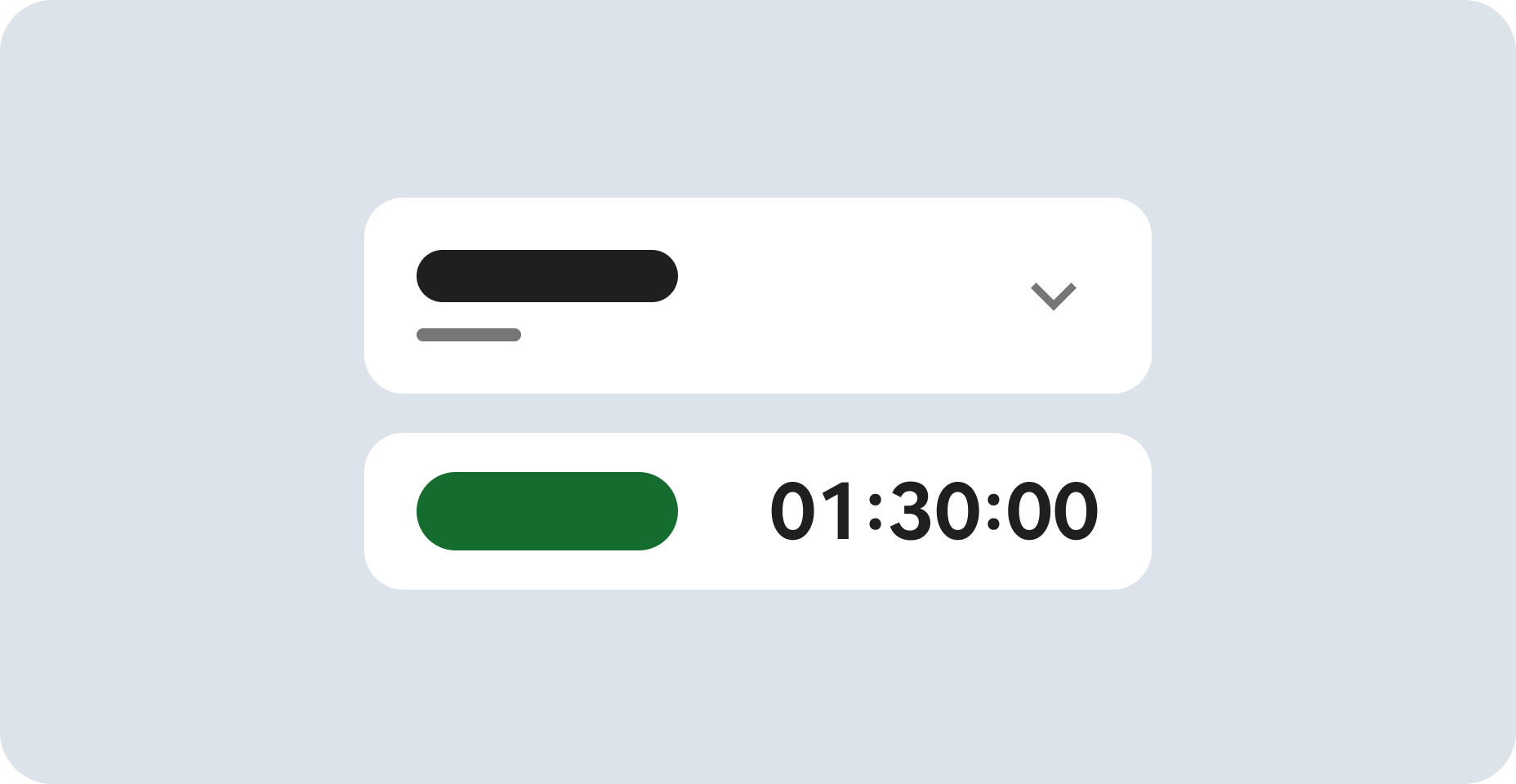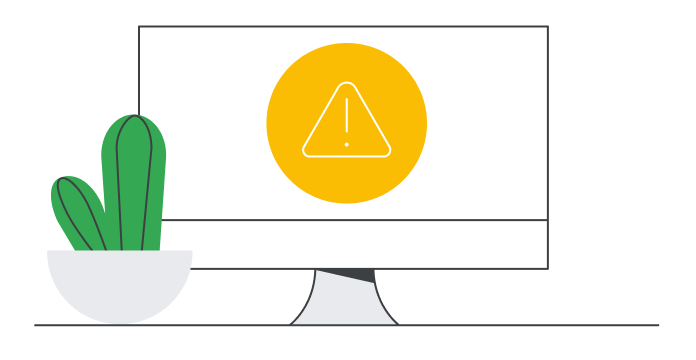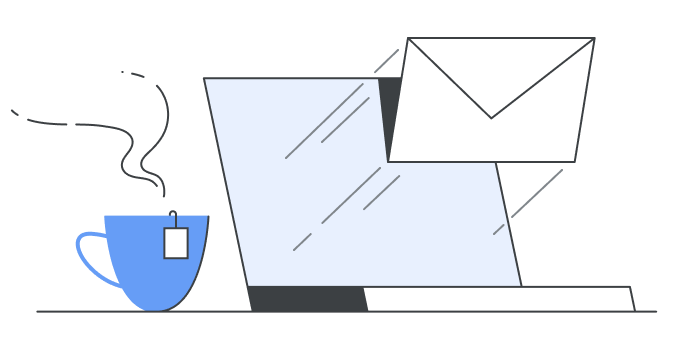
Before you begin
- Labs create a Google Cloud project and resources for a fixed time
- Labs have a time limit and no pause feature. If you end the lab, you'll have to restart from the beginning.
- On the top left of your screen, click Start lab to begin
Add content to Google Drive and Google Calendar
/ 20
Configure an AI Applications identity provider
/ 10
Create Google Drive and Google Calendar Data Stores
/ 20
Deploy an Agentspace app
/ 30
Set up an OAuth Consent Screen and Create client
/ 10
Enable a Google Calender Action
/ 10
In this lab, you will deploy an Agentspace app connected to a Google Drive data store and use the AI assistant to locate information from within your organization.
For this lab, you’ll take on the role of a scientific conference organizer planning a conference to discuss the discovery of an exciting new exoplanet.
In this lab, you learn how to:
Read these instructions. Labs are timed and you cannot pause them. The timer, which starts when you click Start Lab, shows how long Google Cloud resources will be made available to you.
This Qwiklabs hands-on lab lets you do the lab activities yourself in a real cloud environment, not in a simulation or demo environment. It does so by giving you new, temporary credentials that you use to sign in and access Google Cloud for the duration of the lab.
To complete this lab, you need:
Note: If you already have your own personal Google Cloud account or project, do not use it for this lab.
Note: If you are using a Pixelbook, open an Incognito window to run this lab.
Click the Start Lab button. If you need to pay for the lab, a dialog opens for you to select your payment method. On the left is the Lab Details pane with the following:
Click Open Google Cloud console (or right-click and select Open Link in Incognito Window if you are running the Chrome browser).
The lab spins up resources, and then opens another tab that shows the Sign in page.
Tip: Arrange the tabs in separate windows, side-by-side.
If necessary, copy the Username below and paste it into the Sign in dialog.
You can also find the Username in the Lab Details pane.
Click Next.
Copy the Password below and paste it into the Welcome dialog.
You can also find the Password in the Lab Details pane.
Click Next.
Click through the subsequent pages:
After a few moments, the Google Cloud console opens in this tab.
Navigate to Cloud Storage > Buckets and click on the existing bucket with the name:
Download the files listed below to your local system to use as demo data:
In the Incognito window where you have logged into the Google Cloud console, create a new tab and navigate to drive.google.com.
Create a new folder in your Qwiklab student account’s drive and name it PlanetCon: Persephone.
Upload the documents you downloaded from Cloud Storage to the folder you just created in Google Drive named PlanetCon: Persephone. These documents relate to the imaginary discovery of a new planet named "Persephone" and the organization of a conference planned for the scientific community to discuss it.
In the same Incognito window, create a new tab, and navigate to calendar.google.com. Accept or dismiss any pop-ups.
Ensure you are authenticated as your Qwiklabs student account by clicking the “s” in the circle in the upper right corner and confirming it is your student-...@qwiklabs.net account.
In the upper left, click + Create and select Event from the dropdown menu.
In the event-creation window that appears, name the event as Astronomers Lunch Planning Meeting, and set a start time of at least one hour from now.
Select Save.
Click Check my progress to verify the objective.
In the Google Cloud Console, navigate to the Agentspace landing page by searching for it at the top of the console.
On the Agentspace card, click Manage.
You will be sent to AI Applications. Click CONTINUE AND ACTIVATE THE API.
Select Settings from the left-hand navigation pane.
On the row for the global location, click the pencil icon .
Select Google Identity as your identity provider.
Select SAVE.
Click Check my progress to verify the objective.
From the AI Applications menu, select Data Stores from the left-hand navigation pane.
Select + CREATE DATA STORE.
Locate the Google Drive card and click SELECT.
For Choose drives you want to sync, select All.
Click CONTINUE.
Keep the default region of global, and give the data store the name Google Drive.
Select CREATE.
Follow the steps in this task again, only this time create a data store for Google Calendar. Name it Google Calendar.
The two data stores should be listed in the AI Applications > Data Stores panel.
Click Check my progress to verify the objective.
From the AI Applications menu, select Apps from the left-hand navigation pane.
Select + CREATE APP.
Find the Agentspace card and select CREATE.
Name your app Scientific Conferences Agentspace.
For a company name, use Scientific Conferences.
Select CONTINUE.
For connected data stores, select the checkbox for the Google Drive and Google Calendar data stores you created earlier.
Select CREATE.
Click Check my progress to verify the objective.
In order for the AI assistant to take actions on a user’s behalf, the user must grant access to your enterprise search and assistant app. To configure the OAuth consent screen and client, follow the following steps:
Navigate to the Google Auth Platform.
Click GET STARTED.
For App Name, enter Scientific Conferences Agentspace.
For the user support email, select your Qwiklabs student account.
Select Next.
In the Audience section, select an Internal Audience.
Select Next.
In the Contact Information section, provide an email address, which can be your real professional email address or your Qwiklabs student account.
In the Finish section, agree to the terms.
Select Create to create your OAuth consent screen.
Your Google Auth Platform dashboard will display a banner that you haven’t created any clients yet. Select Create OAuth Client. If you don’t see this banner, select Clients on the left and then + Create Client.
Select an Application type of Web application.
Name the client Agentspace Client.
Under Authorized redirect URIs, add https://vertexaisearch.cloud.google.com/oauth-redirect
Click Create.
Once the OAuth client is created, close the pop-up by clicking OK. Then, select the OAuth Client named Agentspace Client. Copy the Client ID and Client Secret, and save them in a text document—you will need them shortly to enable actions.
Click Check my progress to verify the objective.
To configure the action, you’ll need to enable the Google Calendar API. To do so:
In the search bar at the top of the Cloud Console, search for the Google Calendar API and select it.
Click Enable if the API is not already enabled.
You can now add the action to your app. Return to the AI Applications console.
Click on the name of your AI Applications App: Scientific Conferences Agentspace.
Select Actions from the left-side navigation.
Select ADD ACTION.
Find the Calendar card and click CONNECT.
Enter an Action connector name of calendar_action.
Enter the Client ID and Client Secret of the OAuth client you created above.
Select the checkbox to enable the Create calendar event action to allow the assistant to create meetings based on requests in the Agentspace search bar.
Click FINISH SETUP.
Click Check my progress to verify the objective.
Take a 10-minute break for the app, its data stores, and actions to finish creating. You can see that your action is finished creating when you select calendar_action from the app's Actions menu and see that it has a connector state of Active.
Then, navigate to AI Applications > Apps > Scientific Conferences Agentspace.
Select Preview from the left-hand navigation pane to view the experience your users will see.
This home page is designed to give users easy access to the content and events they will find most useful. You will see a few sections:
In the search bar, enter the following query: what topics will be discussed at planetcon?
You should see an answer as well as relevant documents in the side bar.
Click the Google Agentspace logo (which you can replace with your own logo from the Configurations menu) to return to the homepage.
Enter a different prompt in the primary search bar: what is the size of Persephone compared to Earth?
You should see a result that extracts the information you are looking for from the Persephone Analysis Report.pdf document you uploaded to your drive. Remember, there is no real exoplanet Persephone, so you know the model is not relying on training data, but is finding information in your uploaded data. You can further validate this by clicking the link icon and the card that appears below the response to be taken directly to the file that serves as the source of this information.
Click the Google Agentspace logo again to return to the homepage.
When you don’t have time to review a document, you can use the Agentspace AI assistant to create a useful summary for you. In the search bar, enter the following query: summarize the document Persephone Analysis Report.
Review the assistant’s response.
In the search bar, enter the following: Create a 1-hour meeting tomorrow at 10am for exoplanet-research@qwiklabs.net to review conference presentation proposals.
The assistant will prepare a template calendar event for you to approve.
Authorize the application using the OAuth Consent Screen you configured using your Qwiklabs student account.
Confirm the appearance of the event on your Google Calendar tab (or navigate to calendar.google.com in a new tab).
From your AI Applications app’s menu, select Integration from the left-hand navigation pane.
Under The link to your web app, click OPEN to preview the hosted application. This is the application for your organization. When configuring Agentspace in production, you could use a DNS record to configure this home page to be accessible from a subdomain of your website, like agentspace.my-domain.com.
In this lab, you’ve learned how to deploy Agentspace to utilize Google’s combined expertise in search, generative AI, and cloud infrastructure to ease knowledge exchange throughout your organization.
Manual Last Updated June 26, 2025
Lab Last Tested June 26, 2025
Copyright 2023 Google LLC All rights reserved. Google and the Google logo are trademarks of Google LLC. All other company and product names may be trademarks of the respective companies with which they are associated.


This content is not currently available
We will notify you via email when it becomes available

Great!
We will contact you via email if it becomes available


One lab at a time
Confirm to end all existing labs and start this one
